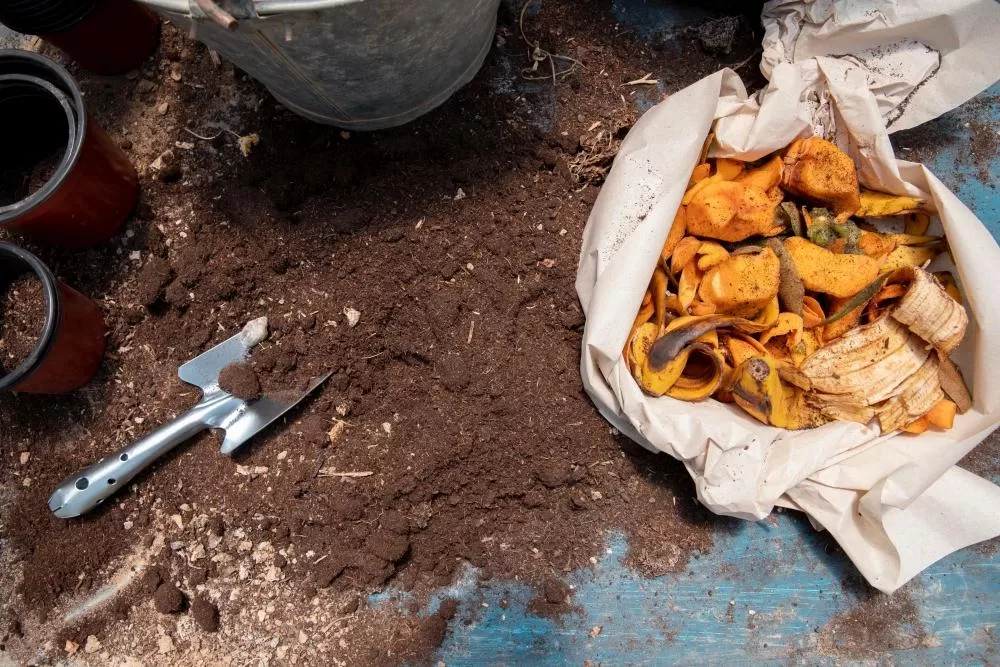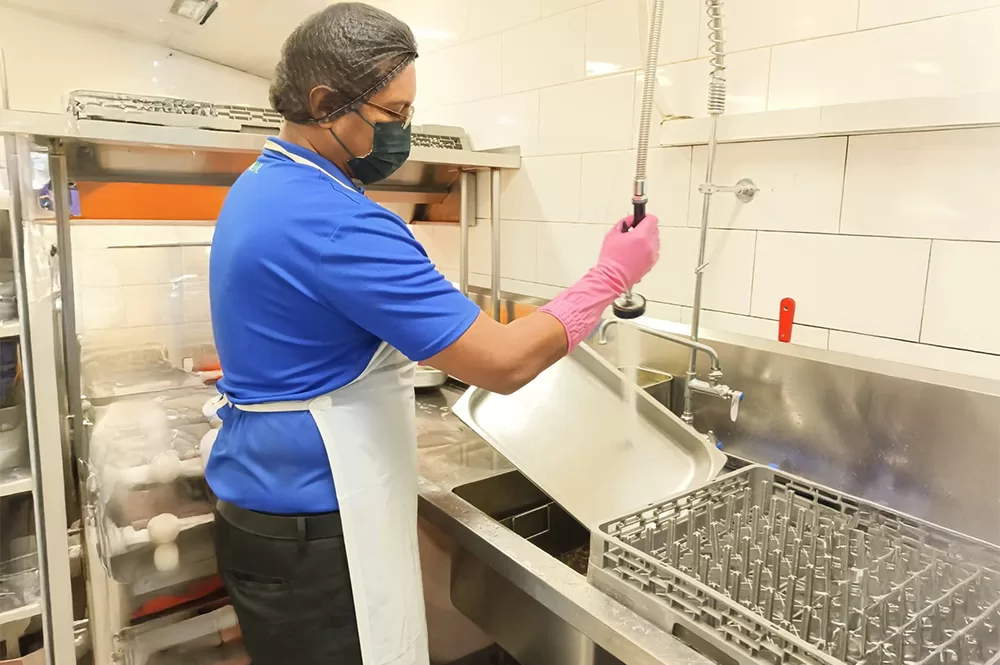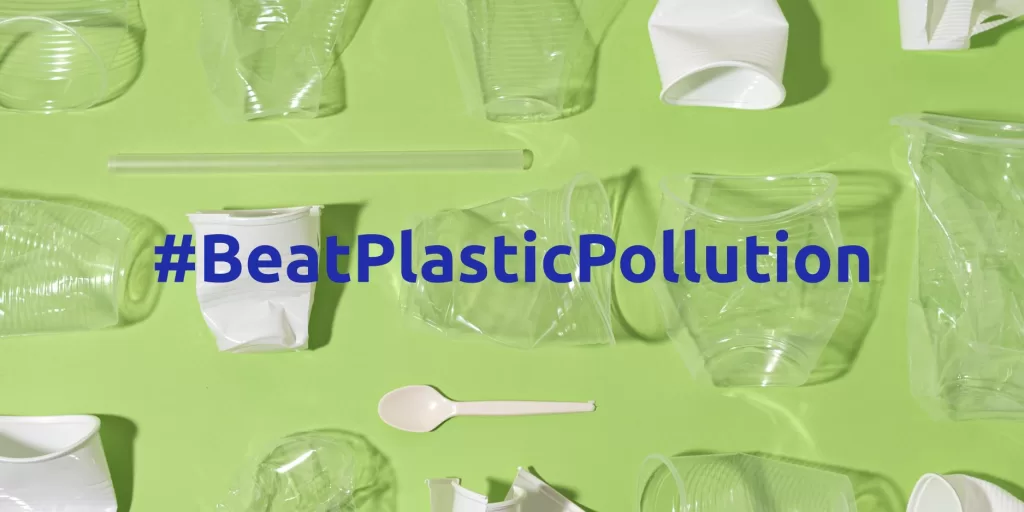Composting offers plenty of benefits for managing food waste and soil health. By transforming food scraps, yard waste, and other organic materials into nutrient-rich compost, we can reduce the volume of waste sent to landfills, improve soil fertility, and contribute to a more sustainable environment.
But did you know that sensor technology can enhance the efficiency and effectiveness of composting processes? Let’s delve into how these advancements revolutionise composting and contribute to sustainable waste solutions.
The Importance of Monitoring in Composting
While composting is a natural process, it requires careful monitoring to ensure optimal conditions for microbial activity. The following are several key variables that need to be monitored throughout the composting process:
- Temperature: Temperature plays a critical role in microbial activity and decomposition rate. Different stages require specific temperatures to support the growth and activity of various microbial communities.
- Moisture: Adequate moisture content is essential for microbial growth and the breakdown of organic matter. Too much moisture can lead to anaerobic conditions and unpleasant odours, while too little moisture can hinder decomposition.
- pH Levels: The acidity or alkalinity of the compost, measured by its pH level, also influences microbial activity. Maintaining an optimal pH range ensures that the composting process proceeds efficiently.
- Oxygen Levels: Most composting processes rely on aerobic microbes, which require oxygen to thrive. Ensuring adequate aeration and oxygen supply is crucial for preventing the build-up of anaerobic conditions and promoting efficient decomposition.
How Sensor Technology Works
In modern-day composting, sensor technology acts as the eyes and ears, providing real-time data and insights into the process. This allows for precise monitoring and control of critical variables. Various sensors are employed in composting systems, each designed to measure specific parameters:
- Temperature Sensors: Temperature sensors provide continuous readings, allowing composters to identify any deviations from the desired range and take corrective action.
- Moisture Sensors: Moisture sensors measure the water content within the compost, ensuring that it remains within the optimal range for microbial growth and decomposition.
- pH Sensors: pH sensors provide real-time data on the acidity or alkalinity of the compost, allowing composters to adjust conditions as needed.
With these sensors in composting systems, operators gain valuable insights into the composting process. This data can be used to optimise conditions, improve compost quality, and enhance the efficiency of waste management.
Benefits of Using Sensor Technology in Composting
Integrating sensor technology in composting offers a range of benefits that can help improve the process’ efficiency, effectiveness, and sustainability.
- Improved Compost Quality: With real-time data on variables like temperature, moisture, and pH, sensors enable composters to maintain optimal conditions throughout the process. This leads to higher-quality compost with improved nutrient content and fewer contaminants.
- Faster Decomposition Rates: Maintaining optimal conditions through sensor-based monitoring accelerates the decomposition process. This translates to faster waste processing, reducing the overall time required to produce usable compost.
- Reduced Labour Costs: Sensor technology automates the monitoring process, reducing the need for manual intervention and labour-intensive tasks. This lowers labour costs and frees up staff to focus on other essential aspects of waste management, like waste disposal services.
- Enhanced Process Control: Real-time data from sensors empowers composters with greater control over the composting process. Deviations from optimal conditions can be quickly identified and addressed, ensuring consistent and high-quality compost production.
- Reduced Environmental Impact: By optimising the composting process, sensor technology contributes to a more sustainable approach to food recycling in Singapore. Faster decomposition rates and improved compost quality reduce reliance on landfills and promote the use of compost as a valuable soil amendment, further minimising environmental impact.
The Future of Tech-Enhanced Composting
Sensor technology has already improved the composting process, but the future holds even more exciting possibilities. Advancements in sensor technology, coupled with other smart waste management systems, are poised to revolutionise composting and contribute to even more sustainable waste management practices.
- AI-Driven Analytics: AI can analyse real-time sensor data to optimise composting conditions and improve efficiency and compost quality.
- Smart Bins and IoT Integration: Smart bins with sensors can monitor fill levels and waste composition, optimising collection routes and providing valuable insights into waste generation patterns.
- Advanced Sensor Networks: Future systems may incorporate more sophisticated sensor networks capable of monitoring a wider range of variables for a more comprehensive understanding of the composting process.
Adapt Sensor Technology for Sustainable Composting
As technology advances, we can expect even more innovative solutions to emerge, further enhancing the efficiency and accessibility of composting. By embracing these advancements and integrating them into our waste management practices, we can unlock the full potential of composting as a sustainable waste solution and contribute to a more circular economy.




